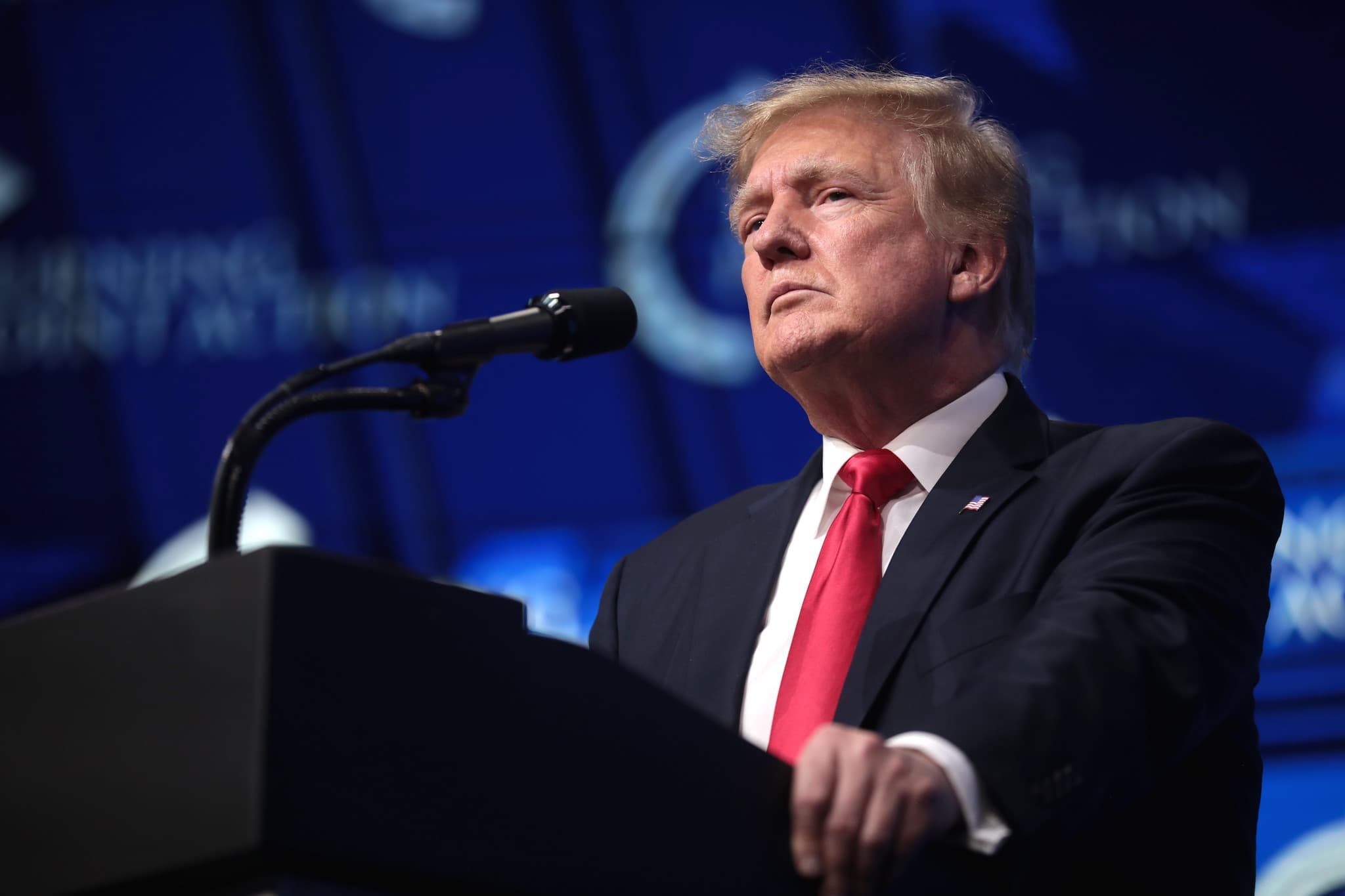GOP hopefuls tackle marriage, trans military service and religious liberty during debate
Kasich draws huge applause for advocating respect for same-sex marriage during debate
By John Riley on August 7, 2015 @JRileyMW

The bulk of Republicans seeking their party’s nomination for the White House in 2016 emphasized support for religious liberty during both of Thursday’s FOX News presidential debates.
Upon questioning from debate moderators and via Facebook and other social media platforms, Kentucky Sen. Rand Paul and Texas Sen. Ted Cruz said they strongly supported protecting religious liberty during the 9 p.m. debate for the top tier of GOP contenders, as did Louisiana Gov. Bobby Jindal during the 5 p.m. debate.
Paul gave a largely libertarian-leaning answer when he was asked by a woman on Facebook what he would do to ensure that Christians were not prosecuted for speaking out against gay marriage, and asked if Christians will be forced to do business that conflicts with their religious beliefs.
“Look, I don’t want my marriage, or my guns, registered in Washington,” Paul said. “And if people have an opinion, as a religious opinion that is heartily felt, obviously they should go out and practice that, and no government should interfere with them.”
But Paul also pivoted to attack Houston Mayor Annise Parker for subpoenaing the sermons of ministers who spoke about homosexuality, gender identity or Parker specifically as part of an ongoing squabble over the Houston Equal Rights Ordinance (HERO). The HERO, which will go before voters this November, prohibits discrimination based on sexual orientation or gender identity in employment, housing, public accommodations, and a number of other areas.
“One of the things that really got to me was the thing in Houston, where you had the government, the mayor, actually trying to get the sermons of ministers,” Paul said. “When the government tries to invade the church and force its own opinion on marriage, that’s when it’s time to resist.”
Meanwhile, Ted Cruz rattled off his defense of religious liberty as part of his conservative bona fides when it comes to social issues. He did this several times throughout the debate. Quoting Scripture, Cruz said, “You shall know them by their fruits,” accusing — though not by name — some fellow Republicans of not being sufficiently conservative enough.
“We see lots of campaign conservatives,” Cruz said. “But if we’re going to win in 2016, we need a consistent conservative, someone who’s been a fiscal conservative, a social conservative, a national security conservative. There are real differences among the candidates on issues like amnesty, like Obamacare, like religious liberty, like life and marriage, and I have been proud to fight and stand for religious liberty…for my entire career, and I will be proud to continue to do so as President of the United States.”
Earlier, in the first debate, Jindal had said that he would issue an executive order, similar to one he signed in Louisiana, protecting the religious freedom of people who oppose homosexuality or same-sex marriage. Jindal has since been sued over that executive order and received a rebuke from the mayor of New Orleans, who signed his own executive order designed to counter Jindal’s, and from IBM, which cancelled a ribbon cutting in Baton Rouge after having previously pleaded with Jindal not to support a bill that the company felt would allow anti-LGBT discrimination.
Jindal also pledged to make sure that the Internal Revenue Service was “not going after conservative or religious groups,” a reference to an alleged “scandal” within the Obama administration having to do with targeting groups — primarily conservative in their political bent — based on words or themes that appeared in their names. IRS employees had selected the groups in question for further investigation to ensure that they were not illegally obtaining tax-exempt status while engaging in nakedly political or partisan lobbying.
Perhaps the most memorable moment of the night with respect to LGBT rights came when Ohio Gov. John Kasich broke from party orthodoxy when answering a question from FOX News’ Megan Kelly about same-sex marriage. Kelly asked Kasich what he would tell one of his children about his opposition to same-sex marriage if they happened to be gay.
“Look, I’m an old-fashioned person here, and I happen to believe in traditional marriage,” Kasich said. “But I’ve also said the court has ruled and I said, ‘We’ll accept it.’ And guess what? I just went to a wedding of a friend of mine, who happens to be gay. Because somebody doesn’t think they way I do, doesn’t mean I can’t care about them or I can’t love them.
“So, if one of my daughters happened to be that, of course I would love them, and I would accept them,” Kasich said as the crowd in the arena broke into applause, with some audience members registering screams of approval. “Because you know what? That’s what we’re taught when we have strong faith. Issues like that are planted to divide us. I think the simple fact of the matter is — and this is where I would agree with Jeb [Bush], and I’ve been saying it all along — we need to give everybody a chance, treat everybody with respect, and let them share in this great American dream that we have…. God gives me unconditional love, I’m going to give it to my family and my friends and the people around me.”
By comparison, during the earlier debate, former Pennsylvania Sen. Rick Santorum urged conservatives not to give up on their opposition to same-sex marriage, saying they could pursue other avenues, such as passing laws to nullify the Supreme Court’s decision legalizing marriage equality. Santorum even compared the idea that marriage equality could be considered “settled law” to the infamous Dred Scott decision that allowed a slaveholder to retain ownership over his slave, even in states and territories were slavery was abolished, because people of African descent were not considered citizens under the Constitution. Santorum, like Jindal, also said that one of the first actions he would take as president would be to issue an executive order protecting religious liberty.
Meanwhile, former Arkansas Gov. Mike Huckabee went out on a limb when asked a question about how he would deal with allowing transgender military members to serve openly.
“The military is not a social experiment. The purpose of the military is to kill people and break things,” Huckabee said to cheers and applause. “It is not to transform the culture by trying out some ideas that some people think would make us a different country and more diverse. The purpose of the military is to protect America. I’m not sure how paying for transgender surgery for soldiers, sailors, airmen, marines, makes our country safer.”
Seattle Sets World Record for LGBTQ Wedding Vow Renewals
56 LGBTQ couples renewed their vows in a Visit Seattle ceremony aboard a cruise ship on what the city recognized as "Love For All Day."
By John Riley on June 12, 2024 @JRileyMW
Visit Seattle claims to have set a new world record for the number of LGBTQ couples renewing their vows simultaneously.
The renewals took place on May 30 on Argosy Cruises' Salish Explorer, dubbed the "Love For All Boat," with 56 LGBTQ couples taking part in a vow renewal ceremony.
Passengers were treated to a meal of Pacific Northwest cuisine and Washington wines following the ceremony.
The ship traveled around Puget Sound at sunset, offering attendees views of the Olympic Mountains and Seattle's skyline, with several iconic landmarks -- including the Seattle Great Wheel, T-Mobile Park, Lumen Field, and Rainier Square -- lit up to mark the celebration of what Seattle city leaders officially recognized as "Love For All Day."
Thailand Makes History by Legalizing Same-Sex Marriage
Thailand passed a bill that moves the country a step closer to becoming the first Southeast Asian nation to legalize marriage equality.
By John Riley on June 18, 2024 @JRileyMW
Thailand's Senate voted to approve a bill legalizing same-sex marriage, putting the country on the cusp of becoming the first in Southeast Asia to enact such a law.
The bill changes references in current law from gender-specific terms like “man,” “woman,” husband,” and “wife” to gender-neutral terms.
It recognizes the inheritance rights of one partner following the other partner’s death, regardless of gender, and grants same-sex couples the right to adopt.
The bill was previously approved in March by a vote of 400-10 in the country's lower house of parliament. On Tuesday, June 18, the Senate passed it 130-4, with 18 members abstaining.
GOP Platform: Soft on Gay Marriage, Savage on Trans Rights
The Republican Party's official 2024 platform no longer explicitly opposes same-sex marriage but harshly opposes transgender rights.
By John Riley on July 15, 2024 @JRileyMW
GOP delegates adopted a convention platform ahead of the Republican National Convention in Milwaukee, Wisconsin. The new platform, at the behest of former President Donald Trump, walks back some of the previous platform's harsher language on issues like reproductive rights and same-sex marriage.
Trump advisers said they wanted the platform to more closely reflect the former president's stances on various issues.
"This is something hopefully you will pass," Trump reportedly told delegates when he called into a meeting of delegates last week, as reported by The Washington Post. "You will pass it quickly, and we will show unity in our party as opposed to the disaster that is going on with the Democrats.
Support Metro Weekly’s Journalism
These are challenging times for news organizations. And yet it’s crucial we stay active and provide vital resources and information to both our local readers and the world. So won’t you please take a moment and consider supporting Metro Weekly with a membership? For as little as $5 a month, you can help ensure Metro Weekly magazine and MetroWeekly.com remain free, viable resources as we provide the best, most diverse, culturally-resonant LGBTQ coverage in both the D.C. region and around the world. Memberships come with exclusive perks and discounts, your own personal digital delivery of each week’s magazine (and an archive), access to our Member's Lounge when it launches this fall, and exclusive members-only items like Metro Weekly Membership Mugs and Tote Bags! Check out all our membership levels here and please join us today!
The Magazine
-
Most Popular
 Matt Walsh Blasts Amber Rose's Appearance at the RNC
Matt Walsh Blasts Amber Rose's Appearance at the RNC  Kamala Harris to Appear on "RuPaul's Drag Race All Stars" Finale
Kamala Harris to Appear on "RuPaul's Drag Race All Stars" Finale  Poll: Who Should Kamala Harris Pick as Vice President?
Poll: Who Should Kamala Harris Pick as Vice President?  J.D. Vance Blocked 30 Pro-LGBTQ Ambassadors
J.D. Vance Blocked 30 Pro-LGBTQ Ambassadors  Buttigieg Smacks Down Vance for "Childless Left" Comment
Buttigieg Smacks Down Vance for "Childless Left" Comment  Pete Buttigieg's Blistering Takedown of J.D. Vance
Pete Buttigieg's Blistering Takedown of J.D. Vance  Gay Porn Star Austin Wolf Arrested on Child Pornography Charges
Gay Porn Star Austin Wolf Arrested on Child Pornography Charges  Gay Porn Star Forced by Russian Police to Entrap Gay Men
Gay Porn Star Forced by Russian Police to Entrap Gay Men  Losing Its Mind Over Kamala Harris, MAGA Stoops to Ugly Name-Calling
Losing Its Mind Over Kamala Harris, MAGA Stoops to Ugly Name-Calling  Elon Musk Says "Woke Mind Virus" "Killed" His Trans Child
Elon Musk Says "Woke Mind Virus" "Killed" His Trans Child
 Poll: Who Should Kamala Harris Pick as Vice President?
Poll: Who Should Kamala Harris Pick as Vice President?  Kamala Harris to Appear on "RuPaul's Drag Race All Stars" Finale
Kamala Harris to Appear on "RuPaul's Drag Race All Stars" Finale  This Week's Advertisers: Issue of July 25, 2024
This Week's Advertisers: Issue of July 25, 2024  J.D. Vance Blocked 30 Pro-LGBTQ Ambassadors
J.D. Vance Blocked 30 Pro-LGBTQ Ambassadors  Buttigieg Smacks Down Vance for "Childless Left" Comment
Buttigieg Smacks Down Vance for "Childless Left" Comment  Elon Musk Says "Woke Mind Virus" "Killed" His Trans Child
Elon Musk Says "Woke Mind Virus" "Killed" His Trans Child  San Francisco's Legendary Gay Club Oasis Robbed at Gunpoint
San Francisco's Legendary Gay Club Oasis Robbed at Gunpoint  D.C. High School Ordered to Recognize Anti-Gay Group
D.C. High School Ordered to Recognize Anti-Gay Group  Vineyard Voyages: Driving Through Virginia's Wine Country
Vineyard Voyages: Driving Through Virginia's Wine Country  Losing Its Mind Over Kamala Harris, MAGA Stoops to Ugly Name-Calling
Losing Its Mind Over Kamala Harris, MAGA Stoops to Ugly Name-Calling
Scene
Metro Weekly
Washington's LGBTQ Magazine
P.O. Box 11559
Washington, DC 20008 (202) 638-6830
About Us pageFollow Us:
· Facebook
· Twitter
· Flipboard
· YouTube
· Instagram
· RSS News | RSS SceneArchives
Copyright ©2024 Jansi LLC.











You must be logged in to post a comment.